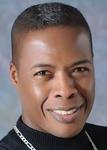-
Hearsay- What You Have Heard Said!
Contributed by Antonio Torrence on Mar 9, 2017 (message contributor)
Summary: This sermon is about learning to love others as ourselves so that we can be the children of God
“Careful the things you say, Children will listen. Careful the things you do, Children will see And learn, Children may not obey But children will listen. Children will look to you For which way to turn To learn what to be Careful before you say "Listen to me." Children will listen” When Stephen Sondheim penned those words in his musical, Into the Woods, he was attempting to define the framework of our learning- our parents, teachers, mentors, and other socio-economical structures whereby children are apt to listen. Even though they may not always do what we say they do listen. We did. There were those things, consciously and unconsciously that our parents, and environments communicated to us about people, places and things. And those learnings shaped our points of references that we use to make quick decisions about people and whether they are friend or foe. We called those our unconscious biases and some were based on fact but others were just based on hearsay. They were subtle but effective and the problem is that a great deal of the hearsay has been interpreted as actual facts.
Think about it, you may have heard it said often of football athletes that they may be just dumb jocks or how blonds may have more fun but they are not the most intelligent people in the world thus- dumb blonds.
Or, you may have heard it said that girls are not as proficient in math as boys. Or, men are just better leaders and all young women want to get marry and have babies someday.
Or you heard it said all black men are all good athletes and black women are just “angry.”
Or you heard it said that the Irish tend to be over drinkers while the Italians are either, loud, connected with the mob, and talk with their hands.
Those are some of the things that we’ve heard people say and the mass media exploit. And for some of us, we have used those sayings as our points of references when we meet new people or find ourselves in unfamiliar situations. And that’s where we tend to walk on the thin ice of stereotypes, racism and sexism: basing our perceptions of what we have heard others say.
Jesus deals with the hearsay of his day. And although some of it was based on fact, others were based on hearsay of what it meant to be children of God. He explains to all of us that being true children of God extended beyond just simply following the prescribed “thou shall not” law Moses but practicing its intent which is loving God with all our heart mind and soul and loving our neighbors and we love ourselves. Being God’s children was not just the outward expression of obedience but an inward expression of God’s grace and mercy in our lives. To be God’s children one had to do more than just keep the rules but you had to have compassion for those who may mistreat you, misuse you, and abuse you.
It was more than just keeping a list of rules. Just because you haven’t killed someone, doesn’t mean that you did not want to. Just because you haven’t stolen doesn’t mean that you did not covet the things of your neighbors. Just because you haven’t divorce your spouse doesn’t mean that you are in a happy healthy relationship. Sin was sin and the only prescriptive medicine was to address the conditions of the human heart. It was imperfect and Jesus wanted his followers to be perfect. Otherwise, they would be no better than anyone else. Unless they strived for perfection then they would be like students were only barely getting a passing grade but not excelling in the knowledge he was imparting. If you were to call yourself a child of God, then you would have to be perfect. Anything less did not make the grade. Come on now. Think about it. No one would want a doctor who just got C and D’s and barely passing the medical boards operating on them. No one would want a lawyer who just went through Law school just receiving C’s and barely passing the law exam handling their legal case. And yet, we have individuals going through God’s kingdom calling themselves Christians and they are barely getting a passing grade. No wonder the world has a perverted view of Christianity and God’s church. No wonder millennials and generation Xers are falling away because those who have been practicing this thing call Christianity have flunking one of its major courses. Jesus tells us that we have to be better and do better. 48Be perfect, therefore, as your heavenly Father is perfect.
Now you’ve heard it said, that no one is perfect. Then how can we be perfect if no one is perfect? How can we take the high road to righteous when all others are dwelling in the valley of negativity? If Jesus even refused to allow others to call him good because no one was good but the father in heaven, then how could we excel. But, the gospel tells us that the answer lies in love. We are perfected when we learn how to love each other. And for Jesus, these goes fall beyond than just saying you love others, but it is predicated in the actions of how we treat each other. Our perfection develops through our love for each other and God. The apostle John says that “No one has ever seen God; if we love one another, God lives in us, and his love is perfected in us.” (1 John 4:12, NRSV)

 Sermon Central
Sermon Central


